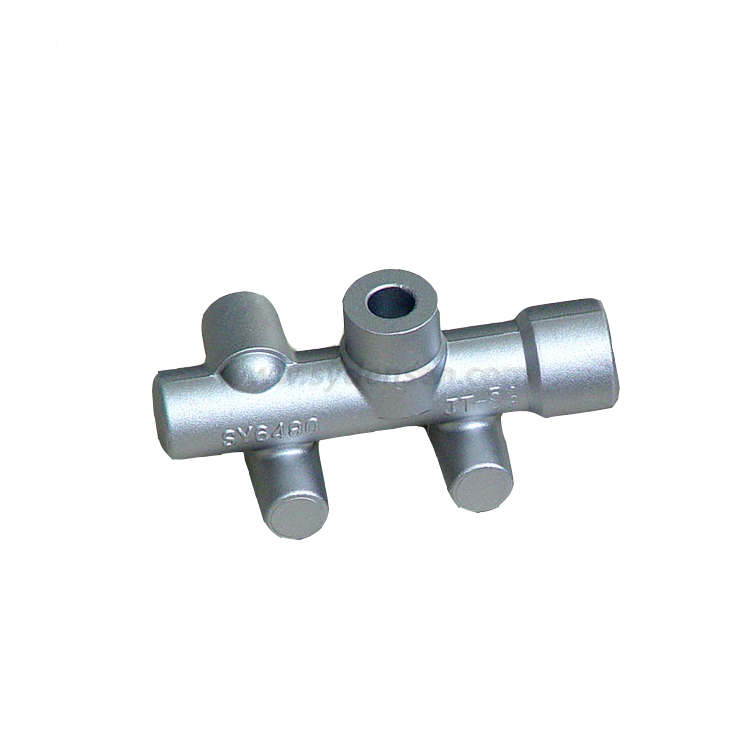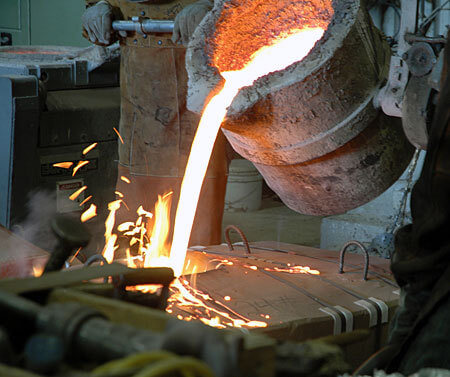Discover the Advantages of Aluminum Casting in Modern Manufacturing
Aluminum casting has actually become a pivotal process in contemporary production. Its lightweight yet durable nature provides considerable benefits for various sectors. The capability to accomplish elaborate designs and maintain limited resistances includes in its charm. aluminum casting. In addition, the cost-effectiveness and environmental advantages make it a sustainable choice. As makers seek innovative services, the duty of aluminum casting remains to evolve. What specific applications and benefits await expedition in this dynamic field?
Light-weight Yet Solid: The Benefits of Aluminum
Lots of products are made use of in manufacturing, aluminum stands out due to its amazing mix of lightweight residential or commercial properties and outstanding stamina. This distinct characteristic makes aluminum an excellent selection for numerous applications, specifically in industries such as auto, aerospace, and building and construction. Its low density allows for easier handling and transportation, contributing to reduced power intake throughout manufacturing and setting up processes.
Furthermore, aluminum's strength-to-weight proportion is outstanding, making it possible for makers to create resilient elements without including unnecessary mass. This particular is particularly useful in fields where weight decrease can bring about boosted fuel effectiveness and general performance. In addition, aluminum's resistance to corrosion boosts the longevity of items, better solidifying its charm in contemporary production.
Ultimately, the lightweight yet strong nature of aluminum settings it as a favored product, fostering advancement and effectiveness across several markets. Manufacturers significantly recognize that these benefits can cause considerable improvements in design and functionality.
Precision and Intricacy in Layout
As producers accept the capacities of aluminum casting, they uncover new avenues for precision and complexity in layout. This production process enables the creation of detailed forms and in-depth features that conventional techniques commonly have a hard time to achieve. The fluidity of molten aluminum enables it to fill intricate molds, resulting in components with limited resistances and fine surface finishes.
This precision is especially useful in markets such as aerospace and automotive, where exact specs are essential for performance and security. Aluminum casting likewise accommodates innovative designs that boost functionality without jeopardizing structural integrity.

Cost-Effectiveness and Performance
Cost-effectiveness and effectiveness are paramount considerations for producers exploring aluminum casting as a production method. Aluminum casting offers substantial expense benefits as a result of its lower product prices compared to various other metals (aluminum casting). The light-weight nature of aluminum decreases shipping and handling expenditures, and its excellent thermal conductivity permits quicker cooling times throughout the casting procedure, enhancing total production rate
Aluminum's adaptability makes it aluminum casting possible for makers to create complex forms and styles, decreasing the demand for extra machining or setting up. This streamlining of manufacturing not only minimizes labor costs yet additionally reduces lead times, enabling companies to react promptly to market demands.
The durability and rust resistance of aluminum castings contribute to longer item lifespans, lowering replacement prices over time. Because of this, suppliers can accomplish a balance of high-grade outcome and lowered operational costs, making aluminum casting a progressively attractive option in contemporary production.
Environmental Sustainability of Aluminum Casting
Aluminum casting stands apart as an environmentally lasting manufacturing alternative, particularly as a result of its recyclability and minimized ecological impact. The process permits the efficient usage of aluminum, a material that can be reused forever without shedding its residential properties. This particular considerably lowers the need for virgin aluminum, consequently saving natural deposits and decreasing power intake connected with extraction and processing.

Applications Throughout Industries: From Automotive to Aerospace
While varied sectors proceed to seek ingenious materials for production, aluminum casting has actually proven to be a functional remedy throughout sectors such as auto and aerospace. In the automotive market, aluminum castings add to light-weight lorry layouts, boosting gas effectiveness and performance. Parts like engine blocks, transmission housings, and wheels benefit from aluminum's strength-to-weight ratio.
In aerospace, aluminum casting plays a considerable role in creating complex parts that need high durability and low weight. Airplane components such as braces, landing equipment, and structural frames use aluminum for peak performance and security.
The versatility of aluminum casting enables it to cater to other markets, consisting of customer electronic devices, marine, and commercial machinery. This versatility not only meets the particular demands of different applications but additionally supports continuous technology in manufacturing procedures. As an outcome, aluminum casting remains a principal in modern production across countless industries.
Frequently Asked Questions
Exactly How Does Aluminum Casting Compare to Various Other Metal Casting Procedures?
Aluminum casting offers remarkable strength-to-weight proportions, faster cooling prices, and superb rust resistance contrasted to various other steel casting procedures. These advantages make it optimal for various applications, boosting effectiveness and performance in manufacturing.
What Are the Typical Lead Times for Aluminum Casting Projects?
Typical preparation for aluminum casting jobs vary from two to eight weeks, depending upon variables such as intricacy, order size, and production capability. Reliable preparation can assist lessen delays and boost job timelines.
Can Aluminum Casting Be Made Use Of for Intricate Styles?
Aluminum casting can undoubtedly fit complex styles. aluminum casting. Its fluidity enables for comprehensive patterns and shapes, making it ideal for intricate elements in various industries. This versatility improves layout freedom while maintaining architectural stability and performance
What Post-Processing Options Are Readily Available After Aluminum Casting?
Post-processing alternatives for aluminum casting consist of machining, brightening, surface treatments, anodizing, and welding. These strategies enhance the coating, boost dimensional accuracy, and increase rust resistance, thereby enhancing the end product's performance and aesthetic allure.
Exactly How Do Temperature Adjustments Affect Aluminum Casting Top Quality?
Temperature level adjustments substantially impact aluminum casting quality by impacting fluidity, solidification rates, and potential flaws. Quick air conditioning can lead to increased brittleness, while too much warmth might cause bending or incomplete filling of mold and mildews throughout casting.
Aluminum casting has actually arised as a pivotal process in modern manufacturing. As manufacturers embrace the capacities of aluminum casting, they discover brand-new methods for precision and complexity in layout. Aluminum casting processes typically generate fewer greenhouse gas discharges contrasted to various other steel casting approaches. While varied industries proceed to seek cutting-edge materials for manufacturing, aluminum casting has shown to be a flexible solution across markets such as vehicle and aerospace. In the auto sector, aluminum castings add to light-weight automobile designs, improving fuel efficiency and performance.